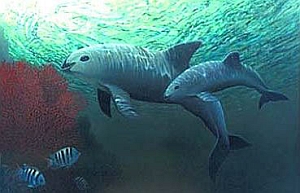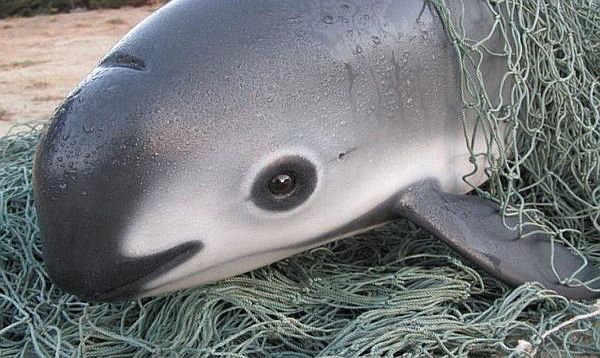Baja California - On June 30, 2017 the Mexican government permanently banned gillnet fishing in the northern Gulf of California, where the critically endangered vaquita marina, a tiny snub-nosed porpoise, lives.
Populations of the vaquita have dropped sharply in recent years because they get caught in the gillnets that are used to catch another critically endangered sea creature, the totoaba fish, whose swim bladder is considered a delicacy in China and can fetch up to $20,000 per kilogram.
Years of conservation efforts and billions of pesos have failed to halt the steady decline in the numbers of the porpoise.
 |
Three drones joined the campaign in July, armed with high-resolution cameras to spot illegal fishing activities in the Gulf area also known as the Sea of Cortez.
Since then, local fishing organization, the World Wildlife Fund, the Sea Shepherd Conservation Society and the Mexican navy have participated in the removal of hundreds of gillnets in the 11,814 kilometers (7,340 miles) vaquita protection area.In April 2017, when the two-year suspension of commercial fishing with gillnets was due to end, the federal government extended the temporary ban through the end of May 2017, and the Mexican Navy, the Federal Environmental Protection Agency (Profepa) and the Environmental Police reinforced surveillance in the protection area.
Two years ago the vaquita population was about 60, a figure now estimated to have dropped to just 30, which is why, on June 30, 2017, the federal government permanently imposed the fishing restrictions in that part of the gulf. In addition, fishing activities on smaller vessels, including sport-recreational fishing in that area, can only take place between 9:00 pm and 5:00 am.
The ban was hailed by the World Wildlife Fund's Mexico director, Jorge Rickards, who described it as a milestone in efforts to save the vaquita. Prohibiting gillnets eliminates the only known threat against the porpoise, he said. Rickards also urged coordinated action by Mexico, the United States and China to stop the trafficking of totoaba swim bladders, an expensive delicacy in Asia whose demand fuels their illegal fishing.
The latest measures come after Mexican President Enrique Peņa Nieto signed a deal on June 7 with Hollywood star Leonardo DiCaprio and Mexican billionaire Carlos Slim to increase efforts to save the vaquita.
Authorities say that later this year they will begin capturing and enclosing the few vaquitas that remain in a protected marine sanctuary as a last-ditch effort to save them from extinction.


